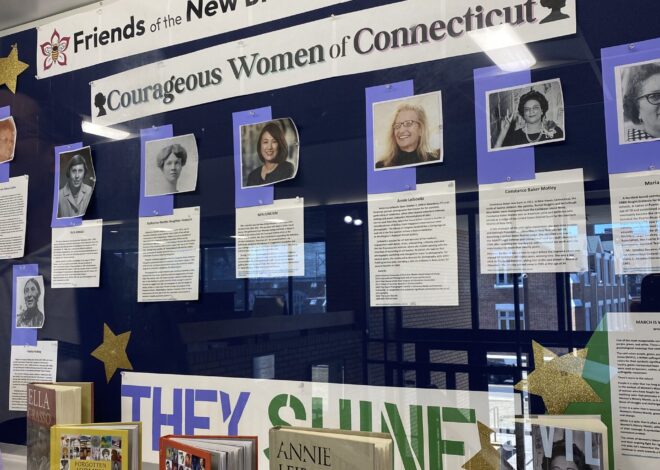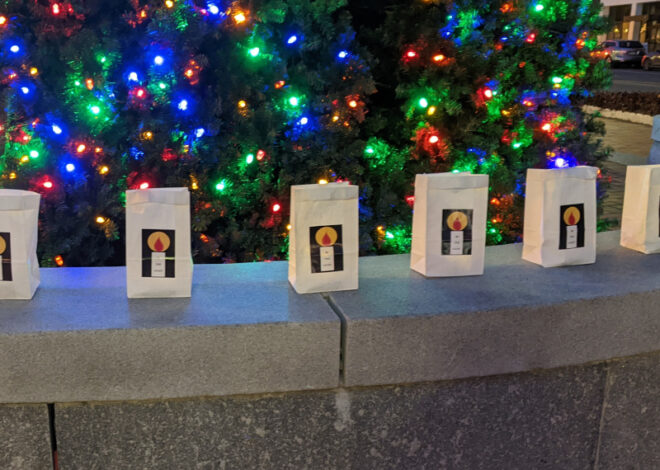CCSU’s Planetarium Show Leaves Viewers Starstruck
By Bruno Muraca
Staff Writer
While many find Saturday night to be a time to party or head to the theaters for a good movie, a crowd of people this past weekend had a different plan for entertainment. The Planetarium in Copernicus Hall at Central Connecticut State University was filled with people to see a show about the universe.

The lights of the huge, round room turned off, but the center piece, a large projector, amplified stars all over the dark ceiling that displayed the actual placement of the stars in that night’s sky. Craig Robinson, Director of the Central Planetarium, stated during his presentation that it is almost impossible to see them as bright as they were in there, if one went to the outside world. Street and building lights in cities cause these beautiful gems in the sky to be blurred out through reflection.
A teacher and entertainer, Craig Robinson is equipped with the intelligence of a scientist, combined with the ability to mix that astronomic intelligence into jokes, as well. “Insurance companies won’t cover people for asteroid impacts,” said the director. “Insurance companies don’t want to make it part of their policy since, if a huge impact were to occur, they would have too many claims.”
The subject of astronomy may sound like something an older person would enjoy, but children, too, are captivated by the show. Kids cheered as Robinson explained how, from before the beginning of everything, there was nothing at all, not even space or time. A quick flash of an explosion on the ceiling began a series to show the different stars connecting to one another to form familiar constellations of different people and animals. Robinson used a laser pointer to show everyone where the designs were in all of these bright stars, one of which led to the story of an inventor who, after just the creation of one object, had become rich and bought a crown for his fiancé, only to have it stolen and go on a 10-year journey to retrieve it. The tale ended happier than anyone would’ve thought.
“An asteroid hit the earth 65 million years ago,” Robinson explained, walking around the room like a tall shadow in the dark. “After the impact, a large crater formed in the ground which released huge amounts of kinetic energy that spread around the world. This is what we believe killed the dinosaurs.”
Children and parents were starstruck over each of the stories Robinson shared. People in the audience asked what would happen if an asteroid like that were to hit Earth again. “Fortunately, we have Jupiter protecting us,” he replied. Robinson explained that in 1994, asteroids that did have the capacity to destroy most life on Earth crashed into Jupiter instead and were broken into fragments.

For an experiment, Robinson turned on the lights and called two young girls up from the audience to help him present how kinetic energy can cause damage. One girl held a paper strip, and the other kept on smacking two rocks together with the paper being in the middle during the hits. Not long after they started, a hole was formed in the strip, and the smoke from the heat of it could be smelled in the first row.
Towards the end of the show, Robinson showed some clips on the ceiling of the planet Mars. People asked about traveling there someday, and he responded that if a human were to spend just a couple of months on Mars and come back to Earth, things wouldn’t be so pleasant for him or her.
“Mars has one-third of the gravity on Earth,” said Robinson. “So divide your weight by three, and that’s how light you would feel on Mars. Staying there too long can result in weakened bones that could snap once back on Earth.” However, in terms of someone able to feel like they weigh less, Robinson did say that a trip to Mars could be considered, “A great diet plan.”
At the end of the show, all in attendance applauded Robinson and his staff for the excellent, educational and fascinating show. Parents were very pleased at how much fun their kids had learning about science in space.
“We heard about it from friends at my son’s school,” said Mike Rodriguez, who came to the event with his wife and child. They recommend that anyone who hasn’t yet to come to these planetarium shows.
The shows occur twice a month in Copernicus Hall at CCSU; the planetarium is right across from the main entrance inside the building. More information on upcoming events in the planetarium with Director Craig Robinson can be found here.



